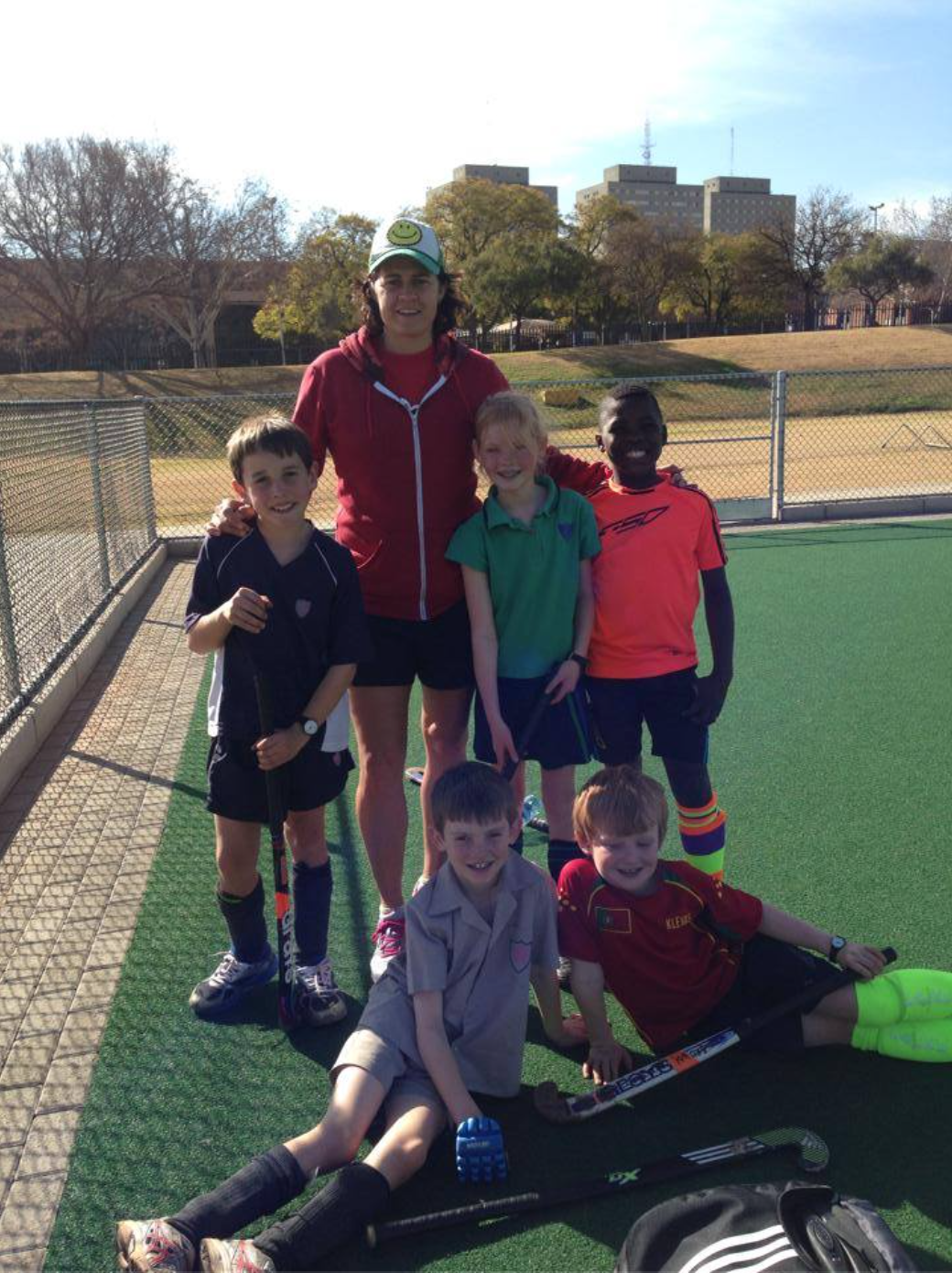Pietie Coetzee is a field hockey legend who recently retired from the sport and has started a new phase in her life building a sports company and brand. As a top-level international sports woman, Pietie had an amazing, record-breaking career and she now harnesses that same passion and determination for her new business as a sportspreneur and in her advocacy work campaigning for cancer awareness.
Pietie's international field hockey career started at the tender age of 16, when she made her international senior debut in 1995 as the youngest player to ever represent South Africa. Her prowess as a player and goal scorer was to become unparalleled and her cherished playing shirt number '15' (now the imagery behind her new brand 'PC15') was equally respected and feared across the field hockey playing world. Pietie scored 200 international goals in 200 international matches. She still holds the World Record for the most international goals by any female player in the history of the game. Her record is 287 goals which she achieved in 289 international matches. Pietie finally announced her retirement from international hockey at the 2014 World Cup.
LoA recently got to sit down with Pietie Coetzee and talked to her about life after field hockey and her current journey building a business and brand as a sportspreneur.
Tell us a little about the company and the brand you are building
The corporate brand I am building is PC15, the name of which comes from my initials and also my number which I played with during my career. It is also a play on words as my speciality on the field was the penalty corner, hence PC. The development of the company and brand PC15 started with my Pietie Coetzee Hockey Clinics, although my vision for the company goes beyond simply the clinics. I launched the PC15 brand so that it could have many business strands to it, although my focus at the current time is very much on presenting hockey clinics all over South Africa. The aim is to give young people in the country who want to be exposed to the hockey skills that are used at an international level, the opportunity to learn these skills right on their doorstep without having to travel. I visit their schools and present a world-class hockey clinic in their own environment.
"I launched the PC15 brand so that it could have many business strands to it, although my focus at the current time is very much on presenting hockey clinics all over South Africa. The aim is to give young people in the country who want to be exposed to the hockey skills that are used at an international level, the opportunity to learn these skills right on their doorstep without having to travel."
Give us an insight into what your company, PC15, does?
So, I now spend my time travelling around South Africa, visiting some really interesting places, often in rural locations. It makes for a really interesting job because it provides an opportunity to meet with young people that you wouldn’t usually get to meet and interact with, all of whom are incredibly enthusiastic. They appreciate that they are getting access to skills and training that they wouldn’t normally have the opportunity to do, due to financial or geographic constraints, whereas instead, I come to them. In fact, in around 90% of the places I get to visit in the country, those young people have never previously experienced the level of skills and training development that I present in my clinics. I have recently visited and undertaken clinics in places such as Klerksdorp, the Midlands, and some of the more isolated places in the Free State such as Fiksburg. In fact, the last place I went to in that part of the country was very rural and only had a grass field where hockey started being played last year. However, I always find one common denominator in these situations - there is always someone there in charge of the hockey at a particular school who is incredibly passionate about the sport, and that makes a huge difference to the level of enthusiasm for hockey in that school. So, when I arrive with my PC15 hockey clinics, the school children already love the sport and all I have to do is show them a few wonderful skills to use to improve their games.
What is your future vision for your PC15 hockey clinics and the development of the PC15 brand as a whole?
My immediate priority is to develop a hockey clinics package that I can market to schools, particularly in rural areas. Recognising that my own personal time is limited, my objective is to give these schools and children something that they can roll out themselves over time. The idea is that I can perhaps go there to undertake the first hockey clinic, and thereafter they can follow a programme that I have created, to be rolled out by them on a daily or weekly basis. I then stay in touch with that school and perhaps revisit it later in the year to further build on what they have been learning as part of the programme. This approach also empowers the teacher or the hockey coach at that school to have more to work with for the pupils, as well as improving their own hockey skills and awareness.
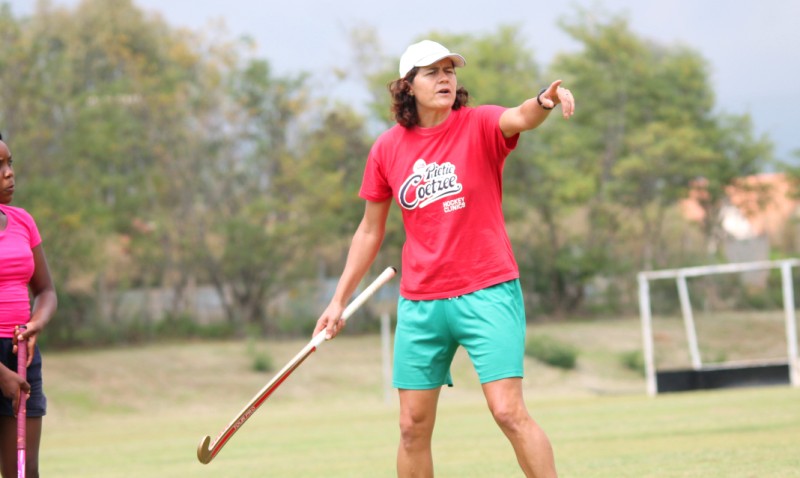
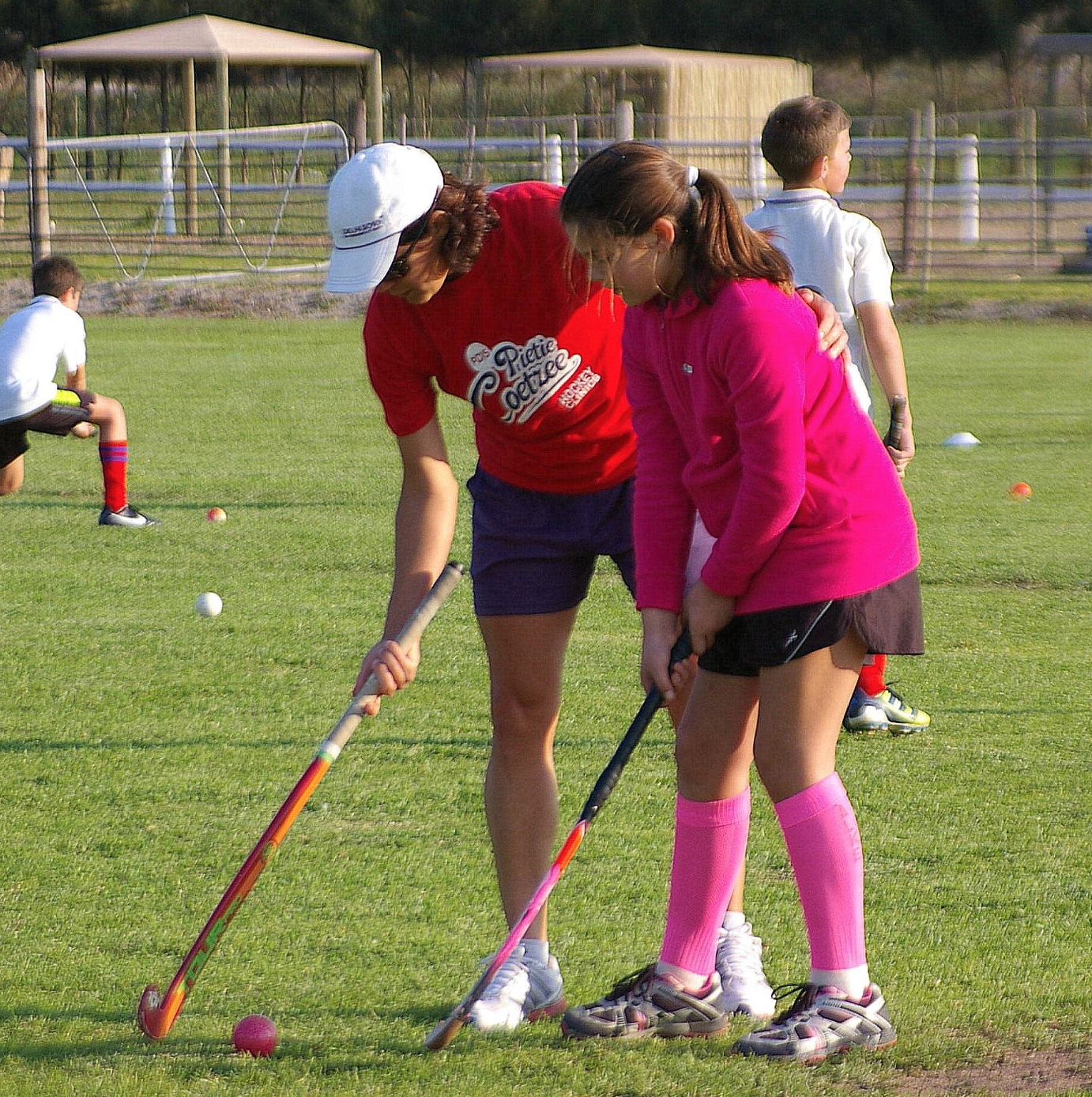
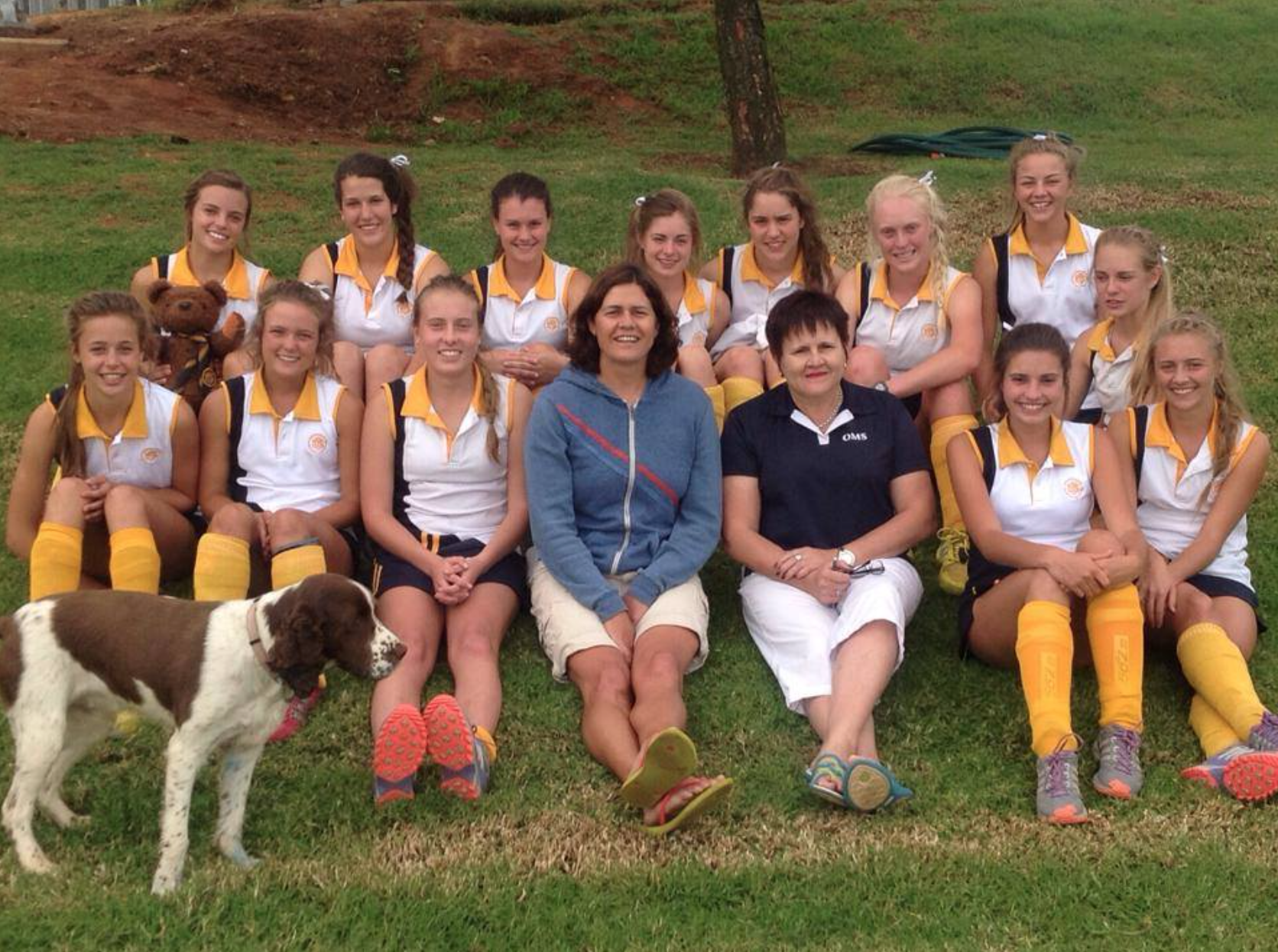
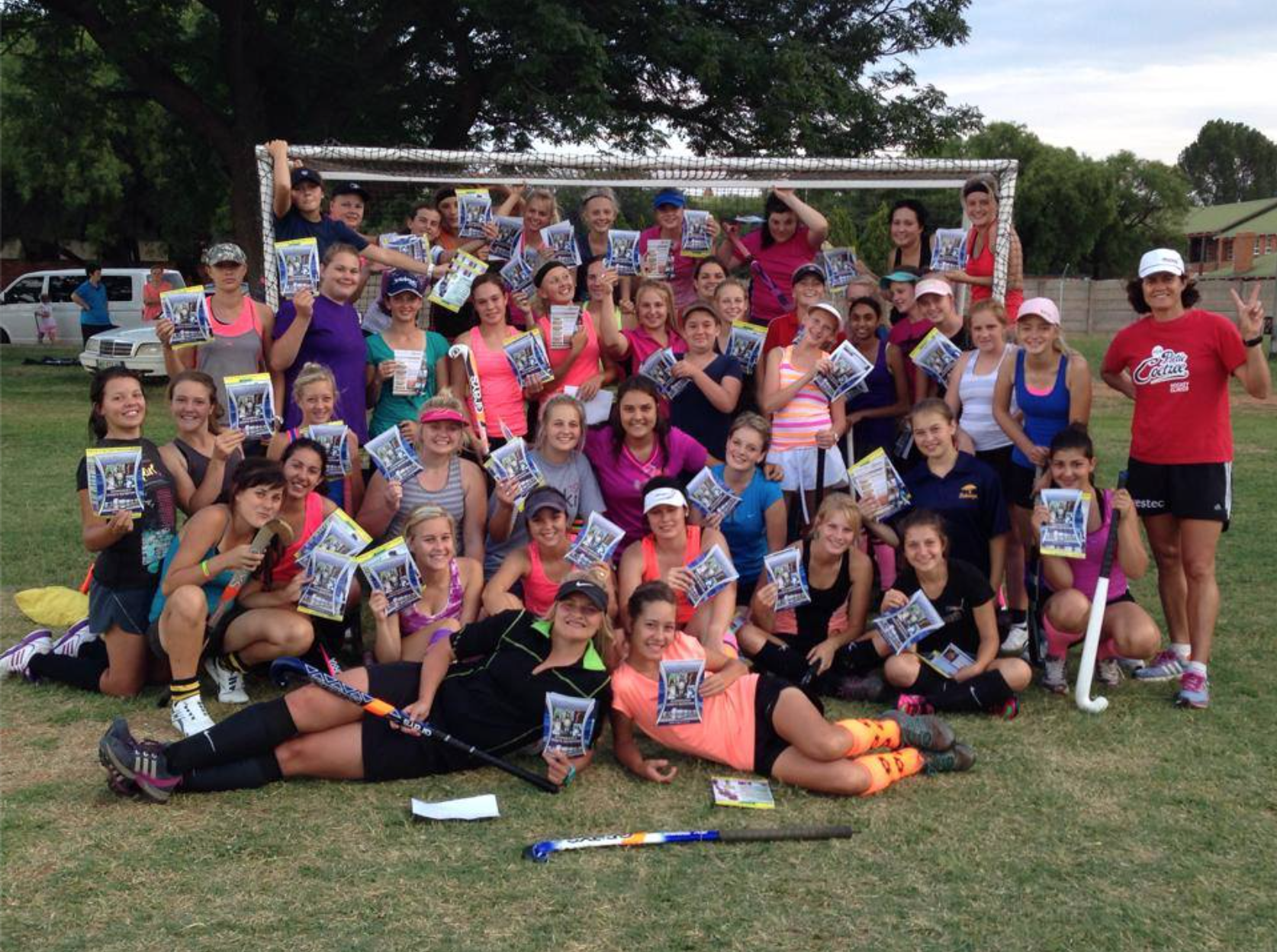
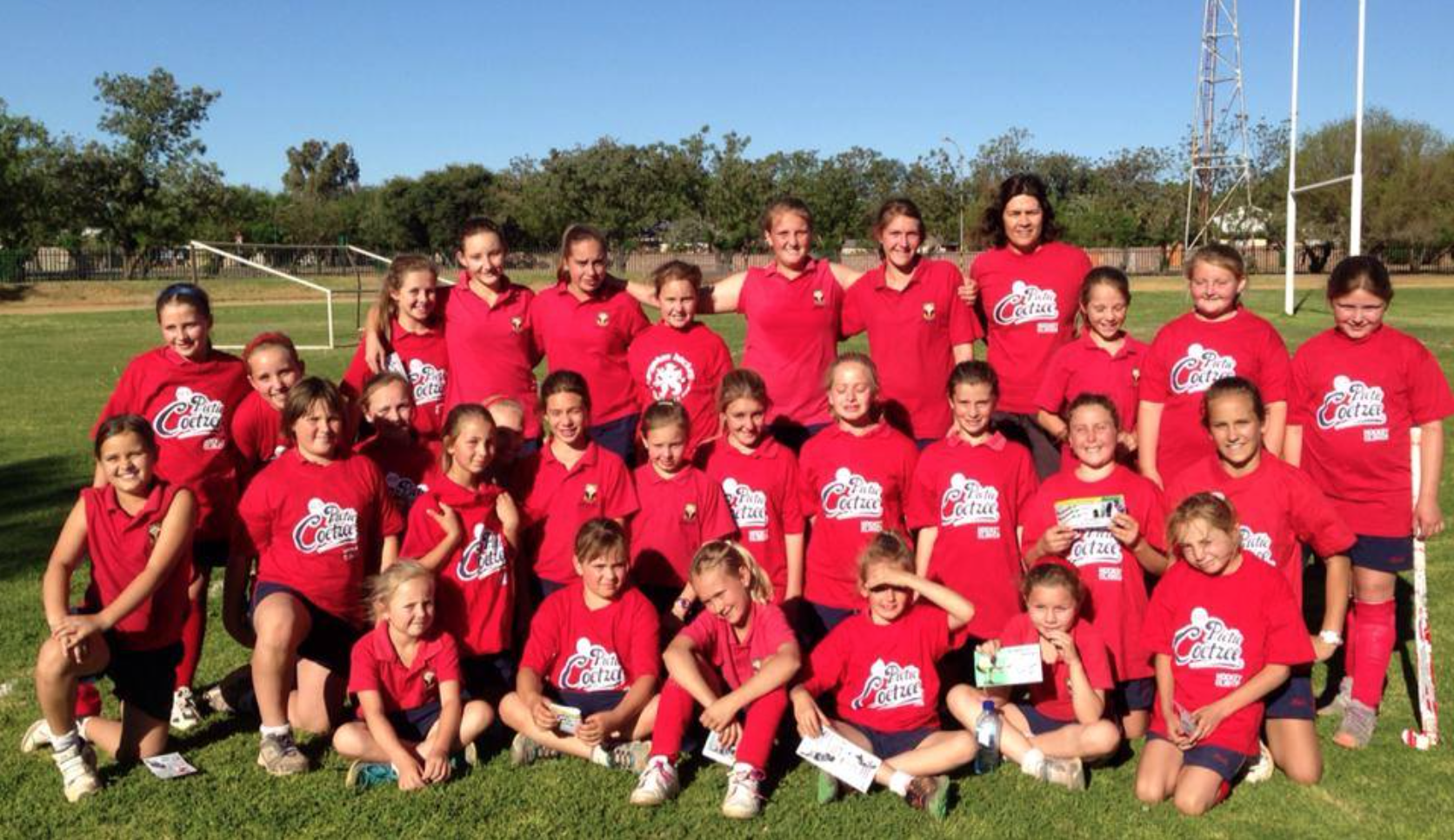
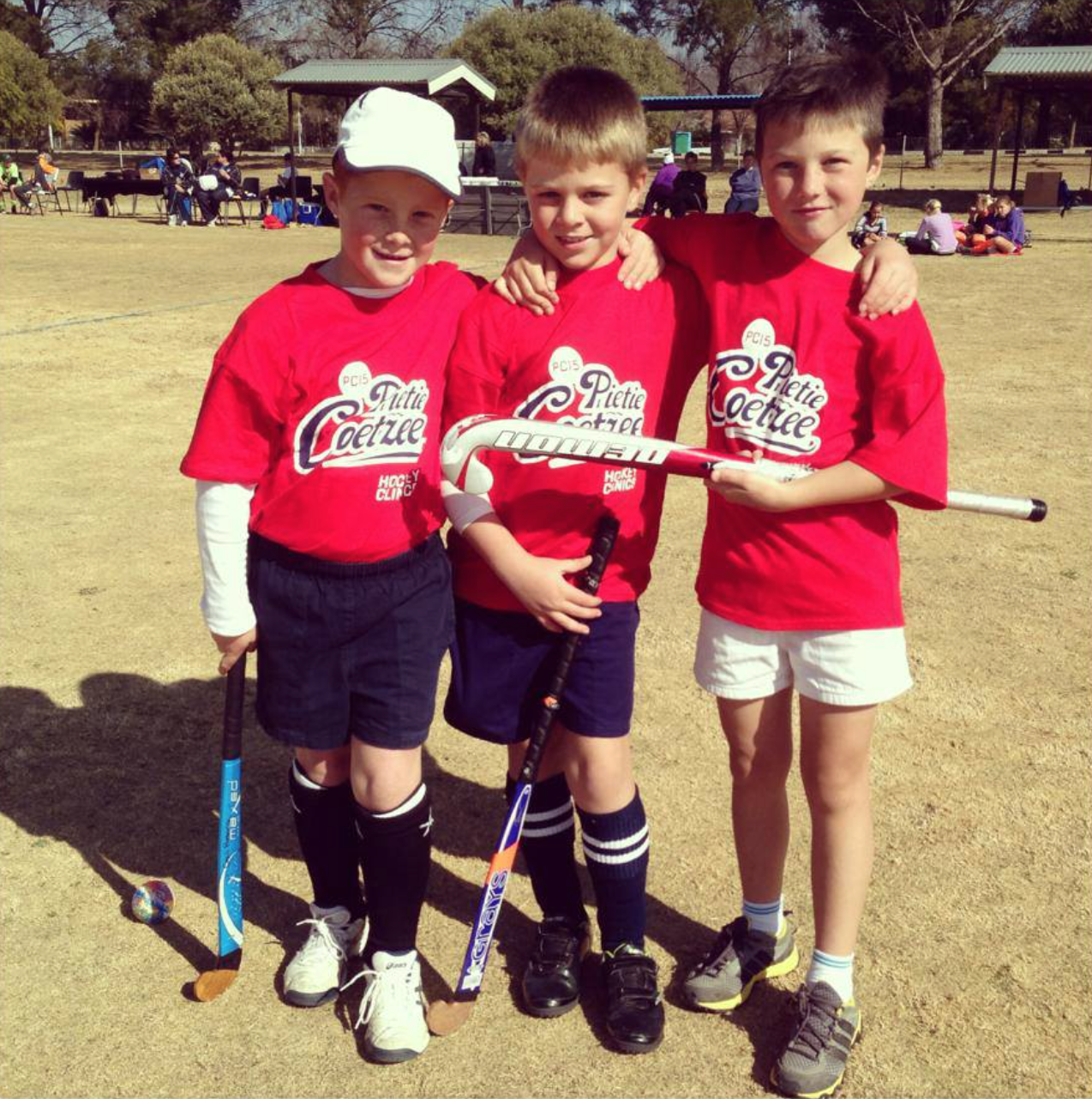
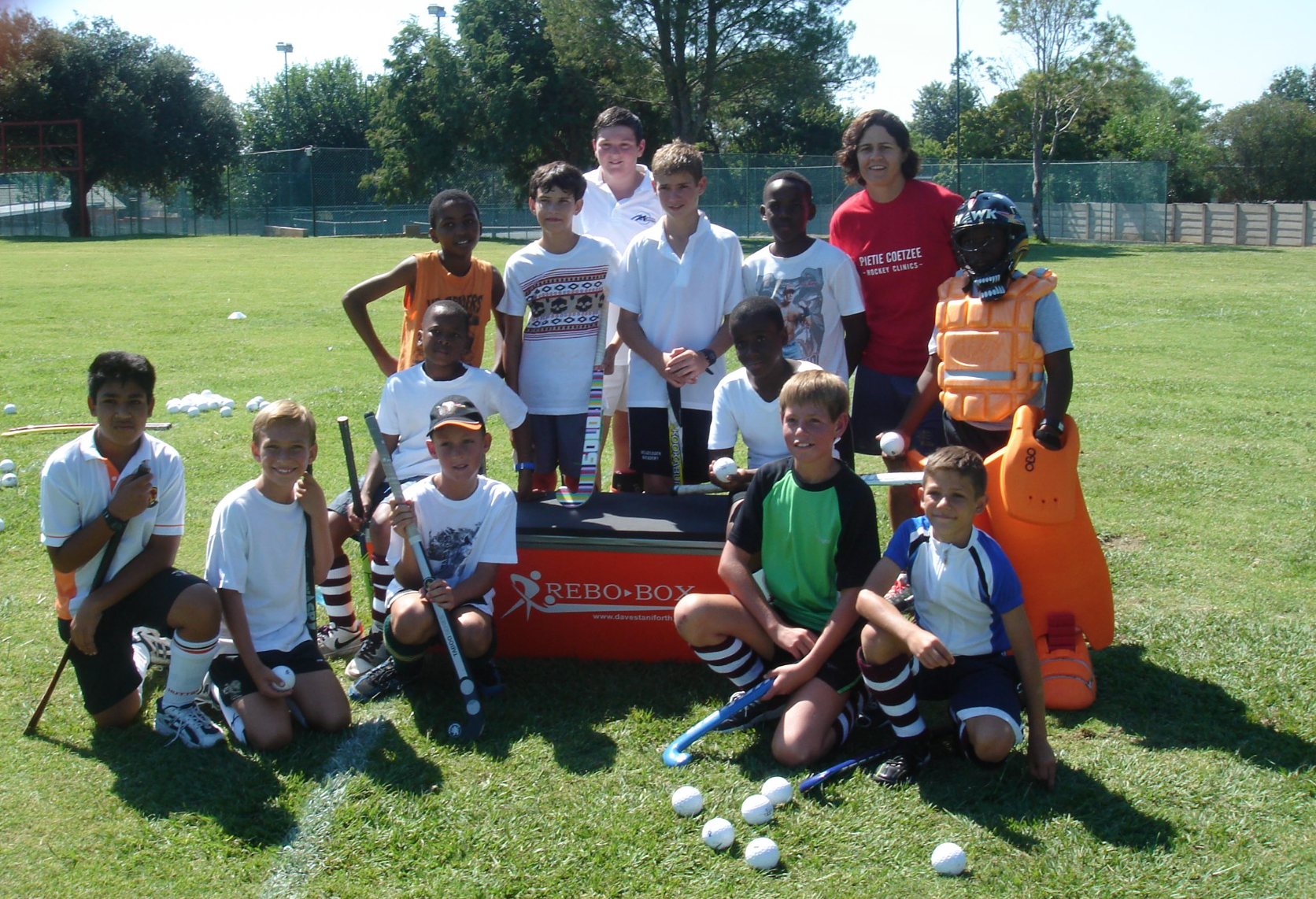
"...when I arrive with my PC15 hockey clinics, the school children already love the sport and all I have to do is show them a few wonderful skills to use to improve their games."
What is the marketplace like in the rest of Africa in terms of hockey development interest?
There are one or two countries, such as Namibia and Zimbabwe, that have a real interest in hockey, and they already have teams participating in competitive tournaments and events on the continent. However, I think there is real scope for further development across Africa in the future and a real opportunity to empower young women in other countries on the continent through the sport of hockey. It is a huge project that will involve not just me personally, but many others involved in hockey, to promote the game throughout Africa. The impetus and the will needs to also come from the African Hockey Federation and other roleplayers on the continent, plus the International Hockey Federation, to make it happen. This is something I am particularly passionate about and would like to be involved with in the future to make it a reality, because the more women who are empowered to get involved in this type of work, the better it will be for the game as a whole - and ultimately on a personal level, for the growth of my own business and brand.
Tell us a little more about your own entrepreneurial journey so far and how you have made the transition from international sports star to entrepreneur and brand builder
It was a natural progression for me as I always knew that I wanted to be involved in the sport of hockey for the long-term because I love it so much. During the build-up to the last Olympic Games in London back in 2012, I was playing in Europe at the time. Believing that for every entrepreneur there is a right time and a right reason to embark on a business building path, my reason was financially-based. I knew straight after the Olympic Games that my financial backing would come to an end from a playing perspective, and I needed to make a viable plan as to how I would survive financially from the month of August through to December that year. So, I decided to try and set up a few hockey clinics straight after the Olympic Games, working with people I knew in South Africa who I felt would be interested in what I could offer in terms of skills development and training. At the time, this was very ad-hoc and not with any brand building in place, I simply approached a number of schools and asked if they would be interested in me running some hockey clinics for them. The response was terrific and the schools were very excited at the prospect of such clinics, and in fact, there was so much work for me that I rolled it over into the next year because all my time was booked out in advance. As a result, the next year arrived and I still had work to do which continued until I realised that I had the opportunity to do this full-time and build a business. I started to think about building my company brand, which was to eventually become PC15 in 2013. I had learned a little bit about branding in the sports world, and its importance, during my playing years, but nowhere near what I should have learned practically when it came to the realities of actually building a brand from scratch. Interestingly, we are not so exposed to the art of brand building in women’s sports, especially not here in South Africa, and that is very sad because it can be so much better. I have only learned this fact in hindsight through my experience of building the PC15 brand. I think this is due to fact that, as South Africans, we do not sell ourselves very well. The fact is that in women’s sport in general in this country, and in the field of hockey in particular, having the knowledge of personal brand building is not seen as very important in the scheme of things. It is a far better known concept in the bigger sports of soccer and rugby, etc. There are a few players currently that do well brand-wise, but it is still a huge struggle for them. The key is to make a link with the corporate world and to leverage support from them.
"I would like to see all South Africans educating themselves about cancer myths and becoming part of the movement to breakdown the cancer stigmas which exist in our country."
Did you find your experience of being exposed to the corporately branded world of SA Hockey a benefit to your own business approach?
Actually, I didn’t get any support in the early days, nor do I now from the corporate world. I have support from my equipment brand that used to sponsor me as a player, Gryphon, but that is mainly because they are very directly involved in the work that I do, and therefore it makes sense to have that connection. But, from a corporate point of view, there has not been much interest to date, and I do not see that changing greatly going forward. However, I think from a developmental project perspective, where we go into Africa to promote hockey across the continent and where we are addressing the challenges of players not having the resources to be able to pay for our hockey clinics to take place in their own countries, there would definitely need to be corporate involvement to make these opportunities happen. If there is any interest shown from companies in taking hockey development to a bigger level, both here in South Africa and across the African continent, then I would be interested in working with those companies in the future. This would then address one of the greatest developmental challenges facing the growth of hockey in Africa going forward.
Where do you see your business PC15 going in the future as a brand, and also for yourself as a women sportspreneur?
I see the business over the next two years moving more into an online environment. I have already started working online on an individual basis with players who are in rural areas and without easy and ready access to formal hockey training and development programmes. However, this is very much on a one-on-one basis. I would like to see this part of the business develop further and definitely fast-tracked in the next year or two. There are individuals out there that have the potential to go far in their hockey playing careers, but because they are stuck often in rural areas without access to high quality, day-to-day coaching, it hinders their progress. I would therefore like to see this part of the business develop further and make a greater impact.
How are you planning to promote these new areas of the business?
I will be using my online platforms to promote the business, but at the moment, I am also personally promoting these types of training and development, and coaching opportunities, when I visit various parts of the country. However, I recognise that for the business to really grow in this space, I need to build greater awareness and get the PC15 brand and products out there in the marketplace.
Do you see yourself and the PC15 brand expanding into the global marketplace at some point in the future?
My long-term vision for the company is for the brand to become self-sufficient and self-sustaining, being in a position to run itself, and in this regard, building the online dimension of the business will be critical. At the same time, because my main business is in the field of coaching, I see myself perhaps working on a global level for a few years, working with a national team somewhere in the world and developing that team competitively. That is not to say that my brand and the business I am trying to build with PC15 will not continue to grow and develop alongside my personal global coaching activities and brand reputation. I see the two business elements working hand in hand together and being mutually beneficial. Ultimately, I would like to see my PC15 corporate brand and all that it has to offer being easy to access by aspirant young players. In that way, I can make a real difference in their sporting lives, particularly here in South Africa and across the continent. However, in reality, the PC15 brand needs to become truly established in South Africa before we can efficiently roll it out across the African continent.
"....you absolutely need to be passionate about whatever it is that you do, because to be a success, you need to put a level of intensity and commitment into it, together with huge amounts of time and energy."
Are you planning to launch the PC15 brand in a highly publicised way as other major global sports stars have done with their personal sports brands?
No, I prefer to move a little more slowly and carefully and start out small initially, ironing out all the small challenges and issues with building a business and a brand as I go along. I think if it gets to the stage where the vision I have to grow the PC15 range of training and development packages to where I would like it to be becomes a reality, perhaps then a major launch would be a possibility, but only at such a time. Right now, the focus is on achieving organic growth for the business.
What piece of entrepreneurial advice would you give to other aspirant young sporting women entrepreneurs?
Firstly, and I speak from a personal point of view here, is that you absolutely need to be passionate about whatever it is that you do, because to be a success, you need to put a level of intensity and commitment into it, together with huge amounts of time and energy. For me, this will always remain a key to success. Secondly, you need to identify a gap in the market for whatever you are doing and identify customers for whatever service or product you are providing. If you can provide a solution to a key challenge or meet a specific need, then you can build a viable business.
Contact or follow Pietie and PC15:
WEBSITE & COACHING CLINIC | ONLINE SHOP | TWITTER | FACEBOOK | YOUTUBE
Why LoA loves it....
With any new startup business, it is critical that there is a genuine and driven passion behind it - this gets you through the difficult and challenging early days. If there is one woman entrepreneur that has such passion for what she does and how she is building a business around it, that person is Pietie Coetzee. She connects with her audience and customers because they all know she has been there and done it - her track record speaks for itself. Therefore in the personal and corporate brand-building space, there is a huge level of confidence and trust in the products and expertise being offered to the customer. In the world of sportspreneurship, the Pietie Coetzee PC15 brand is definitely one to watch, just as this sporting legend was on the field of play. --- Melanie Hawken, founder and editor-in-chief of Lionesses of Africa





